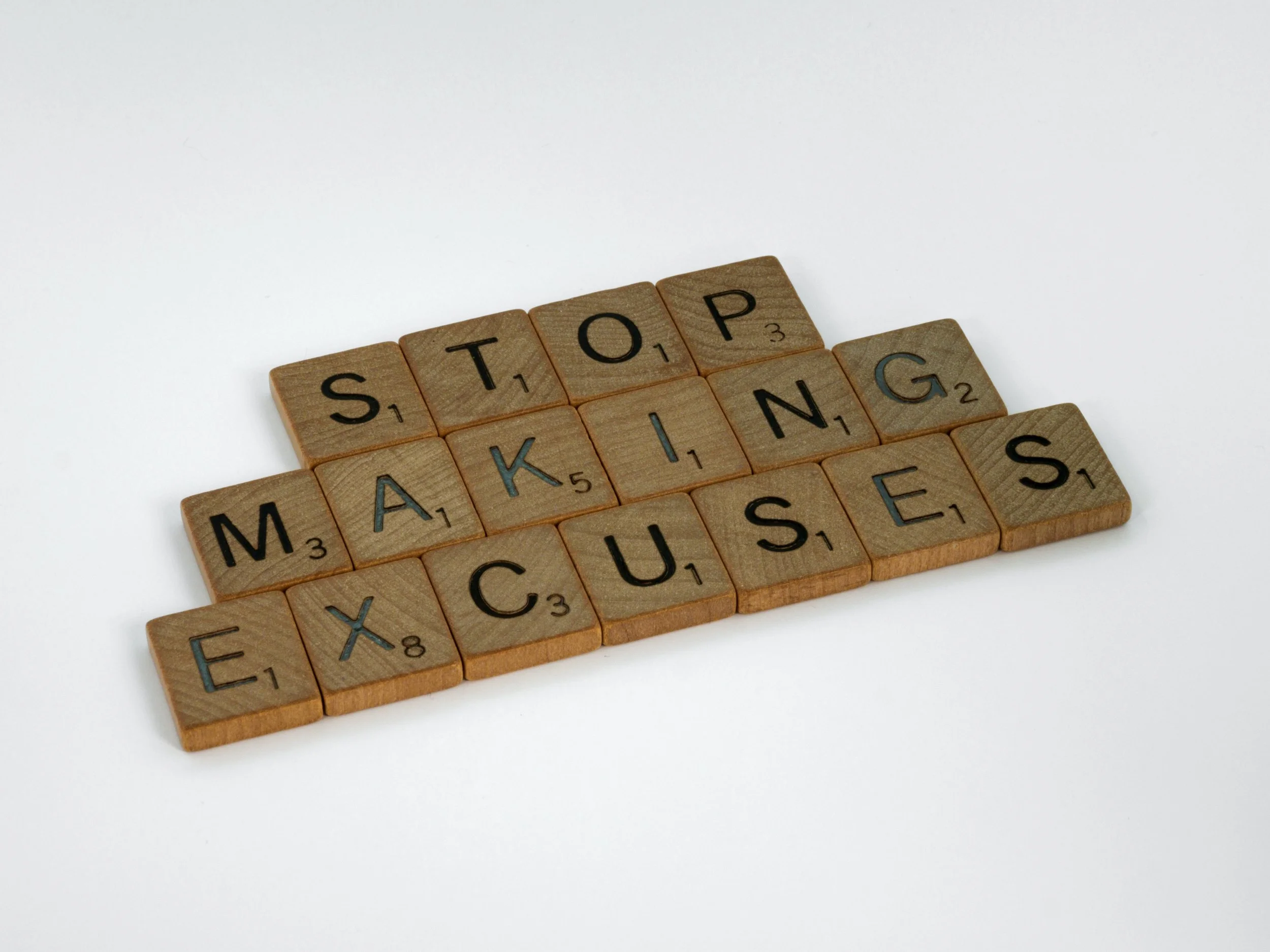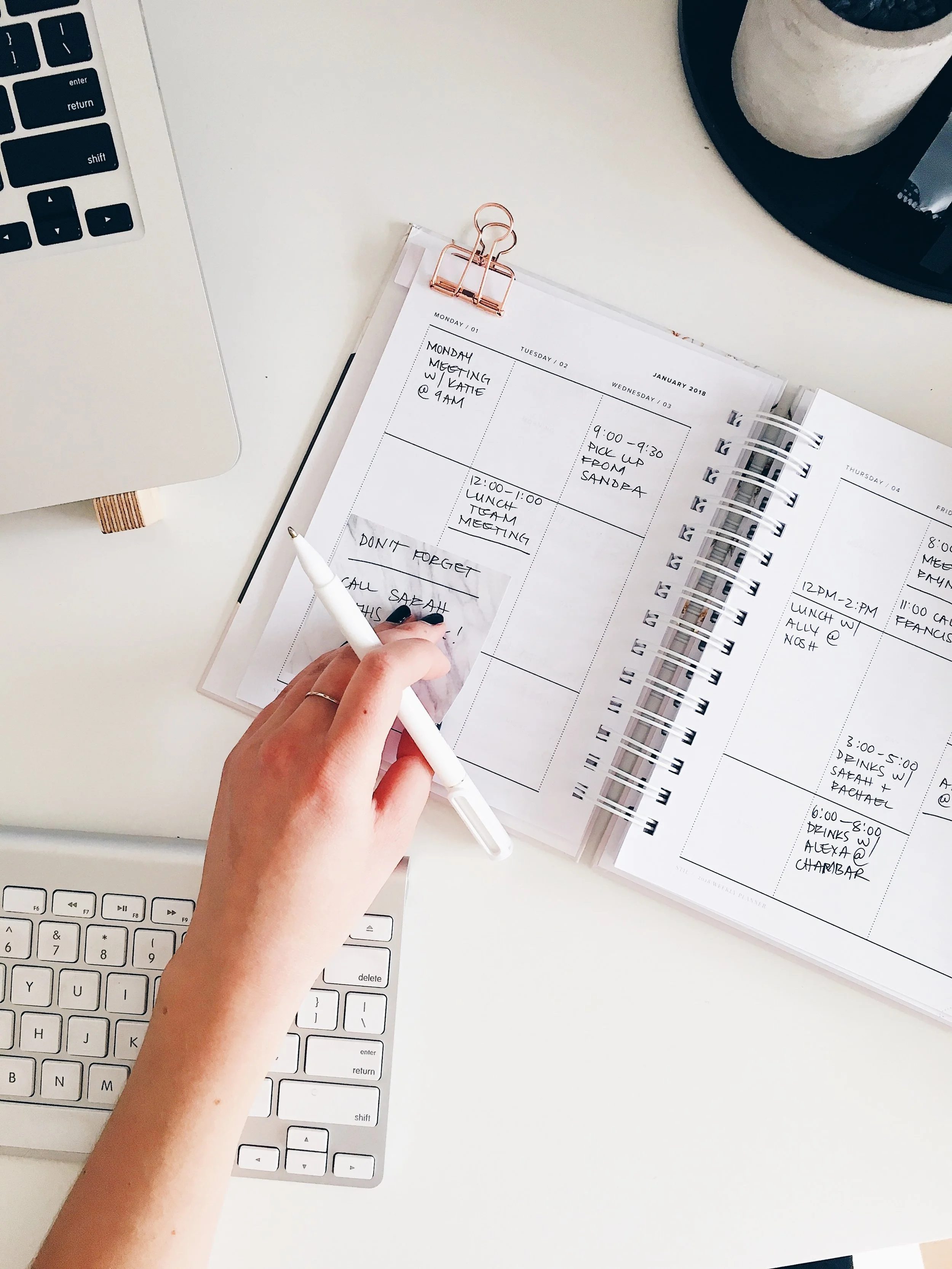23 Easy Powerful Tips: How to Use Your Time More Efficiently Now
How can you use your time more efficiently?
Procrastination; the act of delaying something that must be done, often because it is unpleasant or boring…
Are you looking for tips on how to use your time more efficiently? Do you find that you have so much to do but you just can’t seem to get started or find that halfway through a task you begin to wain and discover that you have wasted too much time on doing something else instead?
You start the day with so many plans and ideas of things you want to achieve and then suddenly realise that it’s almost 5 pm and you haven’t achieved anything as you have spent most of the day procrastinating. How did this happen? And more importantly, how can you stop it from happening again?
We can all have spells of drifting off into space, of wasting time by going to make another cup of coffee, and let’s not even get into how much time is wasted flicking through social media, watching dogs sleeping or other such time wasters.
Why do we do this? How do we find it so difficult to apply our minds to a task that needs doing and get it done? How much time do we waste on stuff that has no value in our lives?
If you read the above and think, “Uh oh, that sounds familiar,” don’t worry you are not alone. In fact, many surveys conducted on this subject found that on average 85 -95% of people procrastinated on a daily basis and not only does procrastination cost you time it can also end up costing you money.
Why then do we do it? Why do we plan to do something and end up wasting the time instead? Why do we lose out on money and great deals?
And why do we often make our lives stressful because we don’t get things done when we need to?
What Causes Us to Procrastinate?
Before you can even begin to tackle your procrastination habit, you need to work out the reason for it in the first place. There can be many reasons that you may identify with as to why you procrastinate;
Boredom
Often one of the main reasons, especially in a work situation. Having a task to do that you find either boring or unpleasant, will often result in a major procrastination episode.
Poor decision maker
If you are someone who finds it difficult to make a decision, then the chances are you will procrastinate, rather than have to choose.
A perfectionist
This type of personality will often procrastinate because if they feel that they can’t do something perfectly, they are more likely to avoid the task altogether.
Lack of organisation
A major cause of procrastination is a lack of organisation or bad planning. Not planning and then not achieving a goal on time can turn people into procrastinators.
Recognise When You are Procrastinating
There is a difference between daydreaming and procrastination and it is important that you recognise when you are doing one and not the other. Daydreaming is often a pause for a few moments when we take our mind away from what we are doing and focus on something else, either a memory, a brief visual distraction or a thought of something we have to do later.
Daydreams last moments before we focus our minds back on the task at hand. Often, a daydream can be a welcome break, especially if we have been concentrating hard on a particular project.
Procrastination, however, is a much bigger problem. This is when we actively delay or put off doing something often resulting in more stress or hassle for ourselves. Signs that you are procrastinating are;
Waiting until the ‘right’ time to begin something, even when this is going to cause you problems. The right time is always when something needs to be done, any other time is just you looking for an excuse.
Starting a task that is urgent and then going off and doing low-priority tasks instead, or just going for a coffee!!
Making a To-Do list full of important tasks and then just leaving it.
Filling your day with anything other than what you need to be doing.
Doing other jobs that are meant for other people if it means not having to do what you are meant to do.
Having the attitude of “I’ll do it tomorrow”, even though it never seems to arrive.
How to Overcome Procrastination
Procrastination can become a habit unless you take control of it.
There are many ways that you can stop but it is going to be a habit that is ungrained, so stopping straight away is not going to be an option. Instead, you need to take a long-game approach by applying some of the following tips, it is a habit that you will be able to break;
1. Make yourself accountable
Being accountable to someone else often means you have no choice but to complete the task.
When you are only accountable to yourself there is always the danger that you can spend your time doing anything other than what you should or need to be doing.
If you have someone else to answer to you will be far more likely to get the job done and in the correct time frame as well.
2. Make a commitment to yourself
Making a commitment to yourself or others is often a good way of seeing a task through to completion. When you make a commitment to yourself, you sign an agreement with yourself to do what it is that you want to do. This is a powerful incentive to complete your task.
3. Reward yourself
A promised reward to yourself on completion or reaching a target is a great incentive to see something through.
Everybody loves getting something at the end of a job well done, so rewarding yourself when you have completed a task is going to give you a real boost and will make it far more likely, that in the future when you set yourself other tasks, you complete them as well.
4. Eat that frog!
Brian Tracy, the motivational speaker, advocates doing the most unpleasant thing first off, at the top of your to-do list. This is his idea behind the phrase “eat that frog”.
Once that is done, everything else on the list seems much easier and you have a greater sense of satisfaction.
5. Address your inner dialogue
Boost yourself with a positive inner dialogue that you can do the task at hand and that you will do an amazing job.
Self-motivation is one of the best ways to get work done. If you find that your inner voice is constantly critical, you will have a much harder time doing the tasks that you set yourself.
If on the other hand, you have a positive, encouraging inner voice you will be far more likely to succeed.
Make sure that your inner dialogue is positive and productive and you will be on your way to success.
6. Get rid of distractions
The easiest way to not be tempted by social media is to remove all devices whilst you are working. Remove any distractions from your workplace and you will find it much easier to stay on track.
If you know that you are someone who is distracted easily, it is a good idea to work somewhere with as few distractions as possible so get rid of books, audio equipment or screens that you may be tempted to switch on and tell people that you are working and can’t be disturbed.
7. Prioritize your to-do list
The Eisenhower Decision Matrix should be applied to prioritise your most important tasks to make sure they get done. If you work on your to-do list prior to beginning you will be organised and will know exactly what order you need to do things in order to reach your goals.
A prioritized to-do list should mean that you will be far more productive and in control of what you are doing and it will also eliminate stress and anxiety from the task at hand.
8. Set a time for completion
When you are working towards a deadline you are far more likely to complete your task. There is little point in starting a job if you have no end date as you will have nothing to work towards. As soon as you start, write down your completion date and then work towards it.
9. Have a break in between your tasks
Having a break in between your tasks will make you far more productive than just trying to work all the way through.
The brain needs to take a break every now and then, otherwise, it is likely to shut off and is far less productive.
There is nothing wrong with taking a well-earned break and recharging your batteries before you begin again.
10. Perform goal setting in the correct way
When setting goals look to the SMART model to help you to set your goals correctly. This model sets out goal setting and completion in a sensible, ordered way that means you are far more likely to succeed because you have a clear and detailed plan to follow. The SMART model follows the below format;
Specific
Measurable
Attainable
Relevant
Time focused
Use this model when you are setting goals and you will have a clear plan moving forward.
11. Eliminate unimportant tasks
Don’t get bogged down with unimportant tasks when doing something. This is easy to do as often it is a way for the mind to distract itself when doing something that you don’t want to be doing. This is only going to delay the completion of your task.
12. Think and plan in advance
When you are setting a task and are looking to manage your time, then you need to make sure that you think and plan in advance everything that you need to do and the time frame that is required.
The most productive and effective use of time is always going to be when a well-laid-out plan has been put into place and followed.
13. Catalogue how you currently spend your time
If you feel that you never have enough time and that you find that you are stressed or unproductive, you need to assess how you spend the time that you have. Are you spending it wisely? Or are you sitting watching box sets on Netflix or scrolling through Instagram?
You will no doubt be amazed at how much time you waste in a day doing “stuff” that really serves no purpose at all. Start taking stock of what you are spending your time on and you will be amazed at how much time you could free up for more important tasks.
14. Consolidate similar tasks with one another
If you are looking to use your time more effectively, then think about chunking tasks together. If you want to meet up with friends but can’t fit them into your routine, think about meeting up whilst going for a walk. This way, you will be able to socialise whilst also exercising, meaning that you are doing two things in one go, therefore freeing up time for yourself.
Look to other areas of your life to identify where you could consolidate similar tasks.
15. Concentrate on one thing at a time
If your mind is taken up with too many tasks it could mean that none end up getting done efficiently, meaning you will have wasted time and have no results to show for it.
Try and concentrate on one thing at a time, do it well and then move on to the next job. This is a much more efficient use of time than trying to do too much.
16. Give yourself space between each task (transition time)
When you have completed a task, take a break. Give yourself some time and space between each task that you set yourself to rest and recharge. Racing from one thing to another may seem like a great idea but it will only lead to burnout and lost time further down the line. Give yourself a good transition period in between tasks.
17. Use the power of saying “No” more
Do you ever find that your precious time is taken up doing things for other people? Do you have a problem when it comes to saying “no”? If you find that you are constantly trying to make up for lost time because of what you do for other people, you need to assert yourself and say” no” more often.
18. Make use of time management apps and tools
One thing that technology has given us is excellent time management apps and tools. Take advantage of them and get yourself organised to use your time more efficiently.
They are designed to help you plan your day and your activities so they run smoothly and hassle-free.
19. Set your own pace, and divide big tasks into chunks
You need to work at your own pace to make your time more efficient. Think about dividing big tasks into more manageable chunks so you don’t become too overwhelmed or stressed.
Work at the pace and speed that you know is suitable for you.
20. Build free time into your schedule
Everyone needs free time in order to relax and recharge and avoid burnout.
We live in a fast-paced world these days and it’s imperative that you have free time to yourself to do what you love and makes you happy. Far from wasting time, this will actually make you more productive.
21. Get up earlier to give yourself more time
Rising early in the morning can give you more time to get things done.
Some of the most productive people are the ones who rise early so as to capitalise on their day.
Getting up early will give you a chance to become more productive, get fitter, can help you to be more creative and can help you to de-clutter your life, all making your time more effective.
22. Use the power of delegation where possible
So much of your time can be taken up by doing the jobs of 10 people. From work life to home life, you can find that you are taking on far too many duties that other people can and should be doing, this is where you need to start delegating tasks where ever possible.
Don’t feel or believe that you need to do everything. Often jobs will fall to you because nobody else wants to do them, you need to take back control and let other people take responsibility. Once you begin to delegate jobs you will be amazed at how much time it gives you.
23. Develop Powerful productive habits
Work smarter, not harder. When you develop productive habits you will find that you have more time.
Managing your time efficiently is all about being productive with the time that you have. Get into some good habits and stick to them.
Rising early, planning and delegating are all good productive habits to take on board and implement in your life.
Final Thoughts
If you are looking for ways to use your time more efficiently and stop procrastinating then try following the tips above to see how they can make a powerful difference in your life.
Overcoming procrastination can be difficult but with time and determination, it can be achieved. Setting goals and deadlines and thinking about how you talk to yourself are all important tools in eliminating procrastination from your life.
If you find that you are struggling on your own then think about working with a life coach. A life coach can offer you the accountability and support that you need to take control of your time management back, whilst giving you tools and tips to make the process easier and attainable.
View below to see how The Eisenhower Matrix can be used to manage your time effectively.
video courtesey of EISENHOWER.
If you would like to listen to the audio versiosn of this blog post click below;
If you have any thoughts on time management please comment and share below













